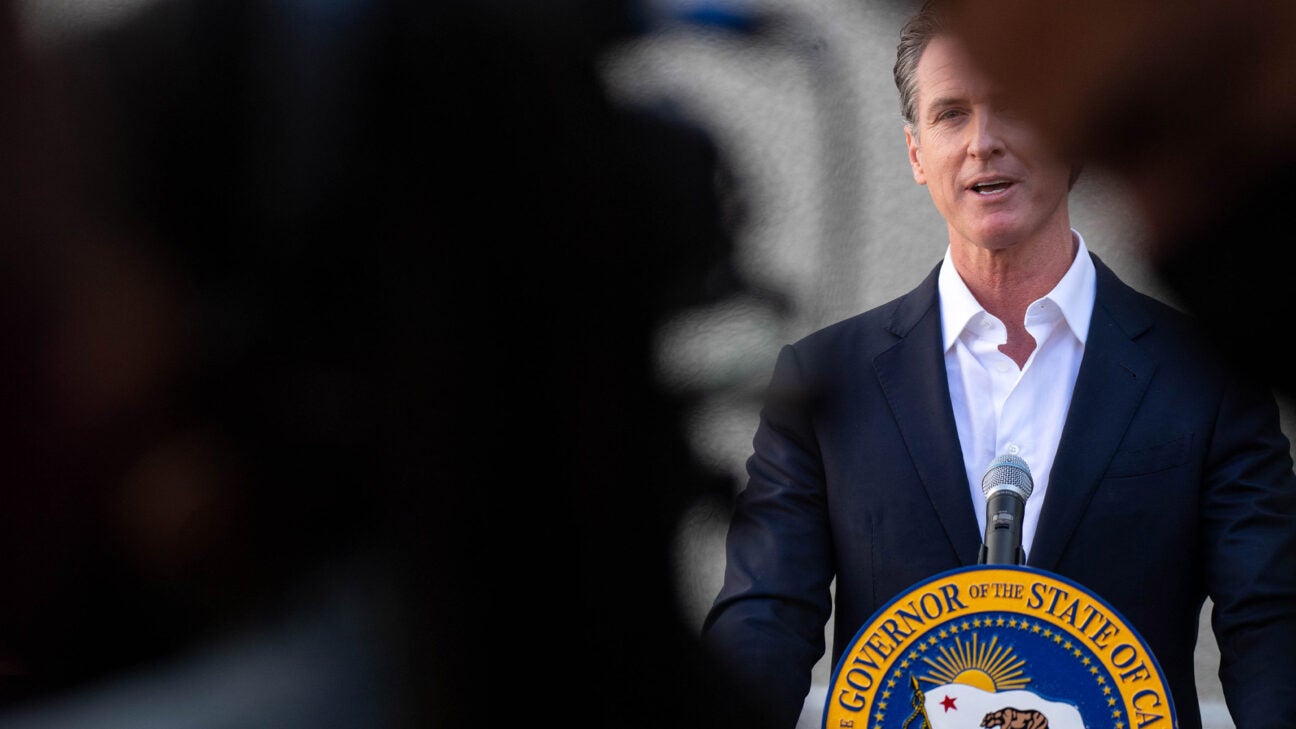
- California Governor Gavin Newsom signed legislation that would allow the state medical board to discipline physicians and surgeons who spread misinformation about COVID-19 during patient care.
- Misinformation is defined in the legislation as “false information that is contradicted by contemporary scientific consensus contrary to the standard of care.”
- Medical misinformation about COVID-19 is suspected in keeping the vaccination rate relatively low in the U.S.
California Governor Gavin Newsom signed legislation on Sept. 30 that would allow the state medical board to discipline physicians and surgeons who spread coronavirus misinformation during direct patient care.
This includes the possibility of suspending or revoking their California medical license.
The bill, AB2098, states that any licensed physician or surgeon is committing “unprofessional conduct” if they disseminate “misinformation or disinformation” about the nature and risks of the virus, the prevention and treatment of COVID-19, and the development, safety and effectiveness of COVID-19 vaccines.
In a statement issued that day, Gov. Newsom emphasized that “this bill does not apply to any speech outside of discussions directly related to COVID-19 treatment within a direct physician-patient relationship.”
As a result, physicians or surgeons who spread COVID-19 misinformation on social media will not face discipline.
Misinformation is defined in the legislation as “false information that is contradicted by contemporary scientific consensus contrary to the standard of care.”
According to the statute, disinformation is misinformation that is “deliberately disseminated [by a physician or surgeon] with malicious intent or an intent to mislead.”
Newsom explained in his statement that the statute’s language “is narrowly tailored to apply only to … egregious instances” of misinformation or disinformation about COVID-19.
He also acknowledged that he is “concerned about the chilling effect other potential laws may have on physicians and surgeons who need to be able to effectively talk to their patients about the risks and benefits of treatments for a disease that appeared in just the last few years.”
“However, I am confident that discussing emerging ideas or treatments including the subsequent risks and benefits does not constitute misinformation or disinformation under this bill’s criteria,” he said.
Impact of misinformation
Dr. Brianna da Silva Bhatia, COVID-19 health strategist for Physicians for Human Rights, said COVID-19 misinformation and disinformation have “hindered scientific, medical and public health professionals’ ability to respond to the pandemic.”
“We cannot help but wonder how many lives would have been saved if … there had been global solidarity, particularly around transparency, truth, and the scientific process from the very beginning of the crisis,” she said.
Much of this misinformation has involved the COVID-19 vaccines; these mistruths deterred many people from getting vaccinated.
With a large toll on the American population.
If every eligible person in the country had rolled up their sleeve, almost 319,000 American lives could have been saved through April 2022, according to an analysis by researchers at Brown University and Microsoft AI Health.
In addition, COVID-19 misinformation and disinformation cause between $50 million and $300 million each day in economic losses, estimate researchers at the Johns Hopkins Center for Health Security.
“Even more shocking is the number of healthcare professionals — many of whom are physicians — who have engineered, amplified and spread disinformation that had clearly been demonstrated to be false,” said da Silva Bhatia.
“Their behavior has contributed to unnecessary deaths and irreparable damage to public health,” she added.
Inevitable legal challenges
Given the large negative impact of COVID misinformation, da Silva Bhatia agrees that the Medical Board of California should have the ability to discipline physicians who “betray their professional ethics and public trust.”
In addition, she said it is “deeply troubling” that this legislation was needed in order to stop physicians from spreading lies about COVID-19 to their patients.
Michelle Mello, PhD, JD, a professor of law and health policy at Stanford University’s Schools of Law and Medicine, pointed out that the California Medical Board already has the power to take action against physicians for unprofessional conduct.
“So it makes sense to me that a medical board that’s vested with the power to ensure that competent medical practice takes place in the state would want to go after this kind of misinformation,” she said.
In essence, the new law takes the additional step of clearly defining COVID-19 misinformation and disinformation as unprofessional conduct.
Mello expects that if any physician or surgeon is disciplined as a result of the law, there will likely be legal challenges.
However, “the legislature appears to have made a calculated decision that it’s willing to test this law in court against inevitable challenges,” she said.
Did California Just Ban Medical Misinformation? What We Know
Source: Pinoy Lang Sakalam



0 (mga) komento:
Mag-post ng isang Komento